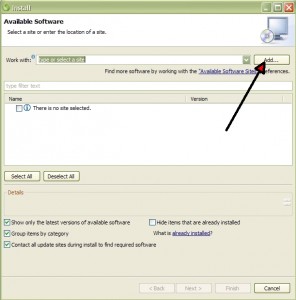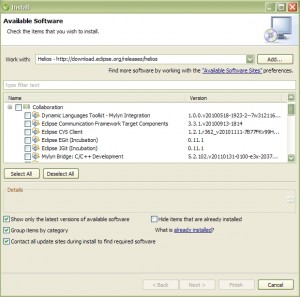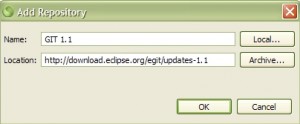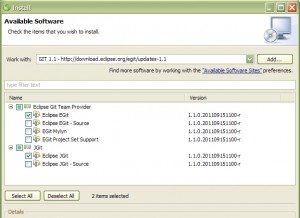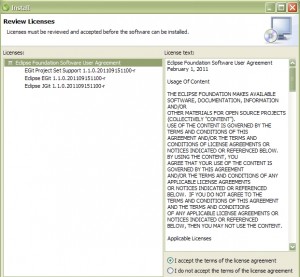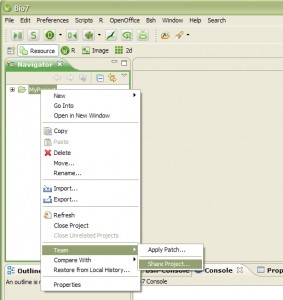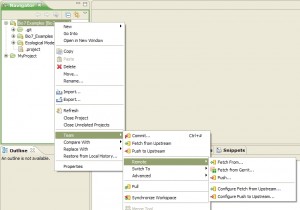08.11.2011
Bio7 is based on the Eclipse platform and integrates the powerful Eclipse Update Manager. Using the Update Manager it is possible to install many useful Eclipse plugins which are compatible with the Bio7 environment. One of this useful plugins is the EGit plugin.
“EGit is an Eclipse Team provider for the Git version control system. Git is a distributed SCM, which means every developer has a full copy of all history of every revision of the code, making queries
against the history very fast and versatile.” (source: http://eclipse.org/egit/)
To install the plugin it is necessary to add two Update Sites to the configuration dialog (Select menu: Help->Install New Software…) of the Update Manager of Bio7 (in a regular Eclipse installation the first site below is default available!):
http://download.eclipse.org/releases/helios
http://download.eclipse.org/egit/updates-1.2
The Helios site has already access to the EGit plugin (see screenshot 3 below) but with the second link the latest version of the EGit plugin can be installed (see this website!)
After you’ve added the repository (plugin location) to the Update Manager select the Eclipse EGit and Eclipse JGit plugin (see second screenshot below) and accept the license agreement (see third screenshot below).
Please restart the application after the installation process has finished (confirm the restart dialog). After the restart there are new actions available in the menubar and in the toolbar. To share a Git project select the project and use e.g. the context menu in the Bio7 Navigator view.
To clone an existing repository use the import action of the Bio7 platform. For instance the Bio7 examples can be fetched from GitHub: https://github.com/Bio7/Bio7.git (Read-only. No password required!)
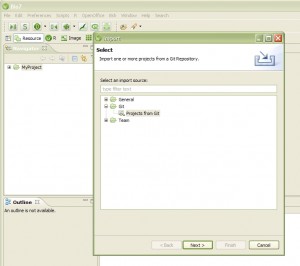
If you have a regular Git repository availabe Git actions will e.g. show up in the context menu.
Beside the different actions there will be also new views availabe for different Git tasks.
For the documentation of the EGit plugin visit: http://eclipse.org/egit/.
Free Git repositories (with some limitations) can be created e.g. on GitHub, Gitorious or on Google Code.
